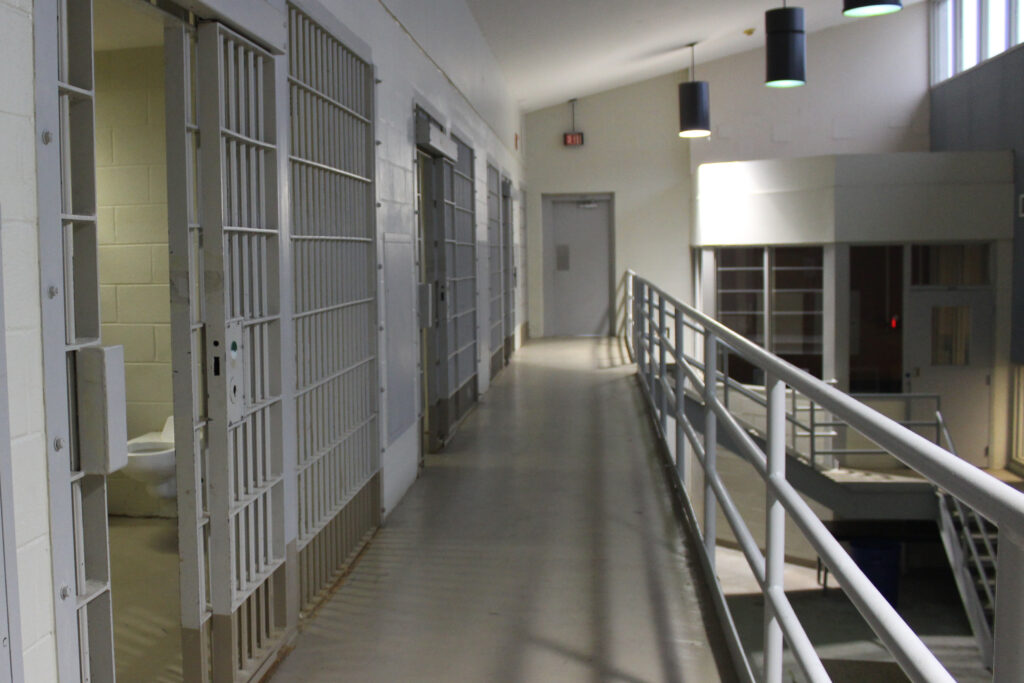Grace*, a Black 15-year-old from Pontiac, Michigan, was incarcerated in May for violating her probation because she was behind on her school work. Her school, Groves High, switched to remote learning during the pandemic.
Grace’s incarceration went against the legal and educational communities’ suggestions to allow leniency for juvenile offenders during Covid-19 and to promote safety and health with the exception of extreme cases. It also exposed the legal system’s blatant dismissal of learning curves and a lack of compassion for their youth.
In March, Michigan Governor Gretchen Whitmer issued an executive order that prohibited the detainment of juveniles who violated their probation and suggested that residential placement and confinement be eliminated unless a juvenile posed a serious threat to himself or others.
they arrested a black teen……FOR NOT DOING HER HOMEWORK????? “tHe sChOOL tO PrisOn PIPeLIne isN’t ReAL”
— not ni (@nixluuvy) July 15, 2020
At the time of her confinement, Grace posed no physical threat to anyone’s safety.
Her probation was the result of an incident that occurred on November 6 when neighbors called the police after a fight between Grace and her mother broke out. Shortly after, she was given another charge for larceny, when she was caught on her high school’s surveillance cameras trying to steal a phone from a school locker room.
In a statement to police, Grace wrote, “After I was caught, I felt instant remorse and guilt. I wanted to take back everything I had done.”
In the months after her charge, Grace and her mother started family and individual therapy and Grace remained out of trouble. There was no police contact following the incidents in November.
On April 21, the juvenile court case for assault and larceny was held via Zoom. Grace’s caseworker, Ashley Bishop, requested that she be sent to a residential facility for mental and anger management treatment. Her court-appointed attorney asked that Grace be given probation because she had no new offenses and the detention centers posed a safety threat due to COVID-19.
Judge Mary Ellen Brennan, a white woman, harshly reprimanded Grace for the violence against her mother as well as theft.
“Most people go through their entire youth without having the cops have to come to their house because they can’t get themselves together,” Brennan said.
However, in lieu of the pandemic, Brennan decided to grant grace “intensive probation” rather than removing the teenager from her home. The terms of the probation were a mandatory GPS tether, counseling, regular check-ins with a court caseworker, no phone, and a laptop for educational purposes only. Grace was required to keep up with all of her schoolwork.
In mid-April, Grace’s public school district announced their transition to remote learning and promised flexibility and support to the students.
The switch to remote learning coincided with the first few days of Grace’s probation. Grace struggles with ADHD and a mood disorder, which caused her to lose focus and forget about her work. As a result, her Individualized Education Plan mandated that she received extra time for assignments and required teachers to check in on her periodically to ensure that Grace remained on track and to clarify assignments if need be.
In April, Grace’s case worker called her mother, who reported that after Grace’s check-in she had fallen back to sleep. Giroux then filed a violation of probation against Grace for failing to complete her schoolwork.
In a conversation with the prosecutor, Giroux voiced that she intended to ask Brennan for Grace’s detainment, because she believed that Grace, “clearly doesn’t want to abide by the rules of the community.”
Birmingham, MI is located in Oakland County, where “from January 2016 through June 2020, about 4,800 juvenile cases were referred to court.
Of those, 42% involved Black youth even though only about 15% of the county’s youth are Black.” https://t.co/vgCKMmCIGZ
— philip lewis (@Phil_Lewis_) July 14, 2020
Giroux filed the violation before clarifying with Grace’s teacher, Katharine Tarpeh, that she was meeting all of her academic requirements. Three days later, she reached out in an email and was told that Grace was on par with most of the students.
During this time, Grace expressed that while she was struggling, she was making strong attempts to fulfill all of her requirements. She met with Giroux daily and stayed within the terms of her probation. Additionally, Grace reached out to her special education teacher and started tutoring the day that the violation was filed.
“Let me be clear that this is no one’s fault because we did not see this unprecedented global pandemic coming… [Grace] has a strong desire to do well… [She] is trying to get to the other side of a steep learning curve mountain and we have a plan to get her there,” Tarpeh wrote.
The May 14 hearing took place in the Family Division of the Oakland County courthouse that was hearing “essential emergency matters” only. The hearing would determine whether or not Grace violated her probation, and if so, what her punishment would be.
Grace’s attorney was not physically present at the hearing due to concerns about his health.
Regardless of the testimonies of increased dedication to her schoolwork from Grace and her mother, Brennan concluded that she was in violation of the terms of her probation. Brennan stated that Grace was “guilty on failure to submit any school work and getting up for school.” She also called Grace a “threat to [the] community,” in reference to her previous history with theft and violence.
The surprise twist is that the kid is Black. Okay, that probably didn’t surprise you. (Groves, one of the top schools in the state, is largely well off and white.)
— Sam Bagenstos (@sbagen) July 14, 2020
Grace was led out of the courtroom in handcuffs and sent to Children’s Village, a juvenile facility, at a time where courts were advised to send children home.
Her school district sent her packets of material, but Grace was provided no classes or structure. She has yet to meet with a teacher or tutor and sees a therapist less frequently than she did while at home.
“Every day I go to bed thinking, and wake up thinking, ‘How is this a better situation for her?,’” Grace’s mother said in an interview with ProPublica.
Grace will not face her next hearing until September 8. Originally penalized for allegedly not completing her work, Grace is now subjected to an environment where she is physically unable to receive a proper education.
*Grace is the teenager’s middle name used to protect her identity.






